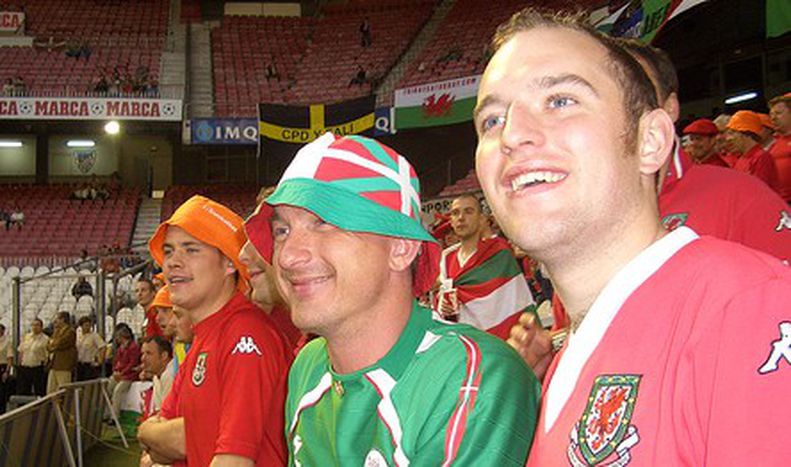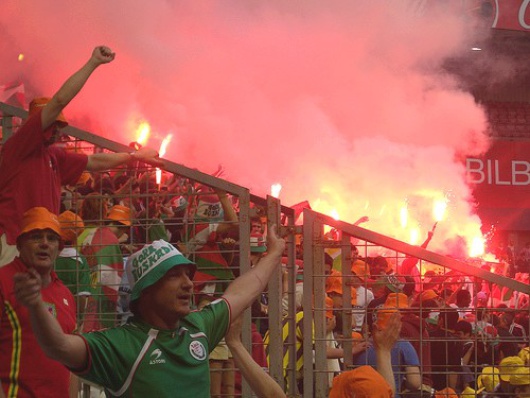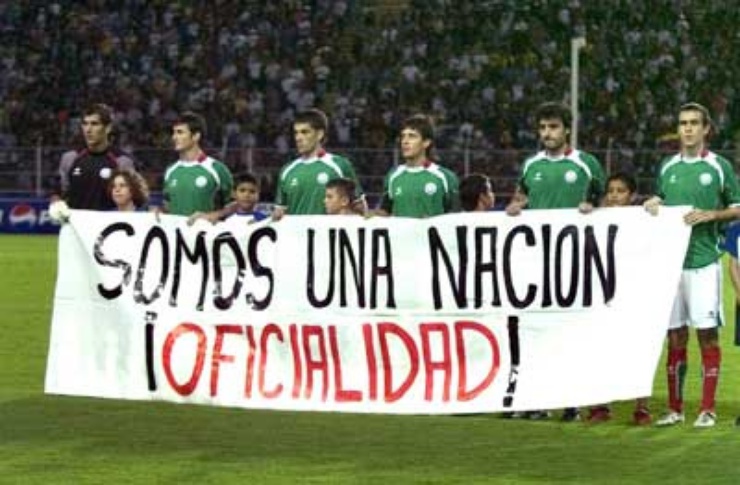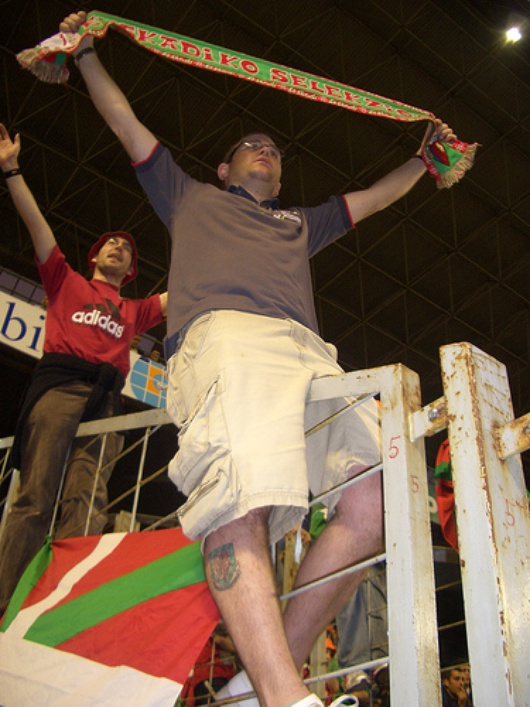
Football: Iran vs Basque ‘Selección de Euskadi’ or Basque ‘Euskal Herria’?
Published on
Translation by:
 Andrew Christie
Andrew Christie
The traditional Christmas fixture takes place on 23 December, but which name will the Basques play under? Nationalism, politics and differing takes on history mix with polemic views in a time of sporting crisis
 This year we found a new hotly debated topic – maybe to get out of the hole that we have been dragged into by the current plight of Basque football teams. What fond memories we have of the golden eighties, which saw both Real Sociedad (from San Sebastian) and Athletic Bilbao take divisional titles, and the momentous nineties, when FC Barcelona (Barça) were known as ‘Basquelona’ because of the number of Basque players on their books.
This year we found a new hotly debated topic – maybe to get out of the hole that we have been dragged into by the current plight of Basque football teams. What fond memories we have of the golden eighties, which saw both Real Sociedad (from San Sebastian) and Athletic Bilbao take divisional titles, and the momentous nineties, when FC Barcelona (Barça) were known as ‘Basquelona’ because of the number of Basque players on their books.
Basque football? Enough to make you weep
Nowadays, on the other hand, Basque football is enough to reduce us to tears – it is in a sorry state. A few teams are miraculously hanging on in the premier division (some might claim they cheated their way there), but the majority are inconspicuously tucked away in the distinctly average second division and some are even flirting shamelessly with Segunda B (the third division).
In other words: we need a change of subject, but to be honest, none comes to mind. Admittedly, nobody wants to open the newspapers any more, what with the pages being filled with horror stories about the bloody credit crunch, while reading books is too much like hard work. So we go back to discussing football.
Christmas is coming and with it the time for turrón (a Spanish nougat speciality - ed), festive parties, family gatherings, panic-buying like there is no tomorrow, lights adorning streets and houses to illuminate the change in our climate, and of course the Basque team’s annual international match. This year the game will be held on 23 December. The opponents are Iran, according to the FIFA rankings the second-best team in Asia behind Japan.
Voltaire: the people who dance on both sides of the Pyrenees

The Basque team is in fact not officially recognised, but instead turns out just for special matches. These games are not without intense national symbolism: the team is aiming to achieve official status and belong to FIFA – in addition to the Spanish national team, that is, even though a number of Basque players often represent Spain.
The team’s roots go back to 1915, when players from the Basque Country and Cantabria joined forces in the Selección Norte (Northern XI). Following several name-changes and a civil war, which was followed by forty years of dictatorship and oppression, the Basque team returned to the beautiful game in 1979 under the name Selección de Euskadi (Basque XI). The problems surrounding the name emerged in 2007, when following requests from the players and pressure from the Basque football association the team was renamed Selección de Euskal Herria.
 It is here that the confusion begins. Some argue that the name Euskadi refers only to the three Basque provinces in the Spanish autonomous region Pais Vasco (Basque Country) and not the neighbouring region of Navarre or the three French Basque regions, Lapurdi, Zuberoa and Behenafarroa which belong to the French department Pyrénées-Atlantiques. Therefore, they say, Selección de Euskal Herria is the correct name for the team, as it has players from all seven provinces – provinces which share a thousand years of linguistic and cultural heritage yet have never had a common political or administrative institution. This has created a wide internal diversity, which is reflected in cultural and political ways. A song by the Basque rock band Negu Gorriak puts this aptly, with tongue firmly in cheek: We could even ask ourselves whether any Basques exist behind all the newspaper headlines. But we are indeed here; at least, Voltaire thought so when he defined Basques as the ‘people who dance on both sides of the Pyrenees.’
It is here that the confusion begins. Some argue that the name Euskadi refers only to the three Basque provinces in the Spanish autonomous region Pais Vasco (Basque Country) and not the neighbouring region of Navarre or the three French Basque regions, Lapurdi, Zuberoa and Behenafarroa which belong to the French department Pyrénées-Atlantiques. Therefore, they say, Selección de Euskal Herria is the correct name for the team, as it has players from all seven provinces – provinces which share a thousand years of linguistic and cultural heritage yet have never had a common political or administrative institution. This has created a wide internal diversity, which is reflected in cultural and political ways. A song by the Basque rock band Negu Gorriak puts this aptly, with tongue firmly in cheek: We could even ask ourselves whether any Basques exist behind all the newspaper headlines. But we are indeed here; at least, Voltaire thought so when he defined Basques as the ‘people who dance on both sides of the Pyrenees.’
Basque bewilderment
In reality the discussion has less to do with football and names than with the contradictions between political aspirations and traditions and the social and political reality, which doesn’t leave much room for territorial games.
What will happen on 23 December, nobody knows. The players say that if the name Selección de Euskadi is kept, they won’t play, and they will only play under the name Selección de Euskal Herria.
A way out of this fruitless discussion is demonstrated by the Roma people, who have sensibly never mixed up population and national territory, and certainly not in today’s border-free Europe. We Basques, on the other hand, continue to mix up our people, our country and our national territory. This keeps us quite busy – perhaps too much so.
Translated from Selección vasca de fútbol: Euskadi o Euskal Herria, esa es la cuestión


